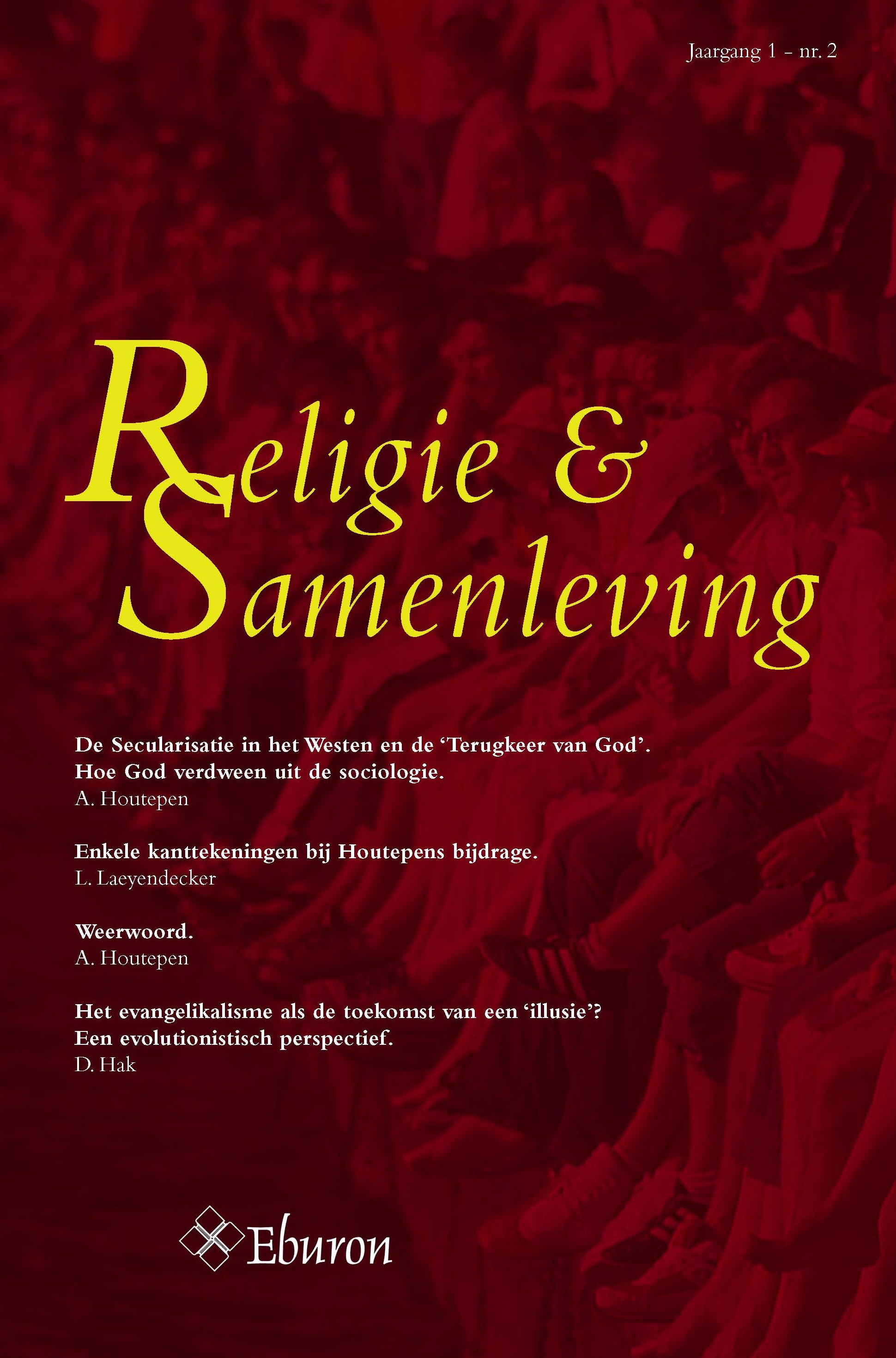Het evangelikalisme als de toekomst van een ‘illusie’?
Een evolutionistisch perspectief
DOI:
https://doi.org/10.54195/RS.13237Samenvatting
I conclude a) that the stage of religion Bellah in his evolutionary classification dubbed modern religion has resulted in secularization, unchurching, and unbelief, and b) concurring with Bellah that the soteriologies of both historic and early-modern Christianity are not satisfactory any longer to post-industrial Christians, as the belief in both salvation by a bookkeeping godhead and the pre-destination by a sovereign one has eroded. Instead of Bellah’s modern religion Evangelicalism appears to be truly modern: the believers’ voluntary decisions to accept Jesus Christ as their redeemer satisfies. Evangelicalism is seen as a family of denominations and congregations with a shared hard core consisting of a) the acceptance of Jesus Christ as saviour; b) personal conversion; c) to reach out to the world, and d) the bible as God’s word (‘inerrant in matters of faith and practice’). Apart from Evangelicalism, a ‘reformative’ reaction in historic and early-modern Christian denominations and congregations is observed; these ‘reformatives’ purport to restore the ancient orthodoxis and orthopraxis. Although Evangelicalism is supposed to be more instrumental to modern religious men’s needs for well-being than earlier variants of Christianity, i.e. has the greater adaptive capacity, we cannot yet foresee the consequences of further institutionalization and/or oligarchy formation in Evangelical denominations/congregations; neither can we predict the effects of the coming generations of evangelic academics and academic evangelical theologians.




